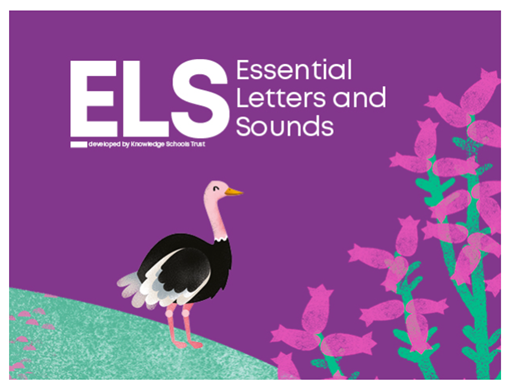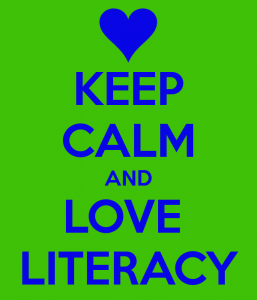English

Our Intention
The teaching of English aims to enable children to express themselves in creative and imaginative ways.
English at Pear Tree Mead is a vital part of school life and our curriculum as a whole.
The main intention for English is to create a lifelong enjoyment of literacy through an active, creative and cross-curricular approach.
We also intend for each child to:
- read easily, fluently and with good understanding
- read a range of text types and to read often, for both pleasure and for finding out new information
- choose books that they want to read and be able to recommend these books to other children
- develop their own imagination and be creative with it
- continually add to their growing knowledge and understanding of words and the power they can have
- write clearly and confidently, for a range of different purposes and audiences, including writing about what is important to them
- understand spelling rules and patterns and be able to apply these to all their work
- use grammar and punctuation effectively
- produce well-presented written work that they are proud of
- use speaking and listening to explore new language
- express their own opinions
- challenge themselves and constantly strive for more
The Teaching of English
The National Curriculum 2014 forms the basis of teaching and learning.
The subject is taught across the school using a cross-curricular approach, lessons teach text, word and sentence level work, speaking and listening, and focus upon different genres.
We ensure pupils enjoy their work by choosing texts that are lively, interesting and that are cross-curricula. We use wordsmith which supports the daily English sessions, giving a fantastic range of resources for effective, dynamic lessons. It brings together everything needed to plan, allocate and assess all in one place.
The staff at Pear Tree Mead aim to enrich the children’s learning and we play interactive games to develop basic skills. The introduction of the new curriculum has enabled the cross-curricular learning to become more focused through the range of opportunities that the children have to read and write.
Teachers work towards independent learning and plan for different working groups. Clear objectives are set for each session and are shared with pupils.

Speaking and Listening
At Pear Tree Mead we believe that the quality and variety of language that a child is exposed to underpins the development of reading and writing. Therefore we ensure that pupils have access to a wide range of speaking and listening opportunities that include:
- Talking about their own experiences, recounting events
- Participating in discussion and debate
- Retelling stories and poems
- Expressing opinions and justifying ideas
- Listening to stories read aloud
- Presenting ideas to different audiences
- Taking part in school performances
- Responding to different kinds of texts
- Talking to visitors in school
- Listening to ideas and opinions of adults and peers
- Role-play and other drama activities across the curriculum.
Speaking and listening activities are planned through English sessions and all other subjects.

Reading
At Pear Tree Mead we wish for children to find reading a pleasurable and meaningful activity. We want to inspire children to be lifelong readers so we ensure that all children have access to a wide range of reading opportunities that include:
- guided reading
- shared reading
- regular independent reading
- hearing books read aloud on a daily basis
- selecting own choice of books
- reading in other subjects
We feel that all staff in the school should be good role models and each class is asked to choose a shared text, which is an invaluable tool for the teacher to model the reading process to the whole class.
In guided reading, texts are chosen to match the ability of the group but still provide an element of challenge. The groups are used to teach children of similar abilities the skills they need to be able to read confidently with expression and to understand the meaning and style of different text types. Guided reading is planned through looking at different Assessment Focuses and the core learning objectives from the National Curriculum.
We have an amazing school library stocked with modern and varied books that will suit all readers at PTM. Reading is rewarded in all classes and library rewards are also given to those that continue their quest to read all the school books!
Each year we take part in World Book Day, this works around a theme to interest the children through dressing up and practical activities.
There is a document on how you can get the best of reading with your cold at home by clicking on the link here.

Writing
At Pear Tree Mead pupils have access to a wide range of writing opportunities that include:
- shared writing
- guided writing
- creative writing which is related to their own experiences and enjoyment
- creating different text types
- writing in different curriculum areas
- handwriting practice
- planning, drafting, editing and presenting
- using ICT
Teachers promote writing and look for ways to inspire and motivate pupils so that they see themselves as ‘writers’. Teachers work with the children to establish the purpose and audience for writing, this we believe motivates the children and provides them with more ownership in their learning. All teachers make teaching objectives explicit to pupils so they know why they are studying a particular text type, the kind of writing activities they need to undertake and what the expected outcome will be.
As a staff we believe in the importance of modelled writing. This allows the teacher and children to share their thought processes and observe how a piece of writing is created. During these sessions children have the opportunity to critique the teacher’s work, which in turn helps them not repeat similar mistakes.
Guided writing takes place with selected groups of children in English sessions to support the children and scaffold their writing.
Phonics and Spelling
Teaching and Learning -
At Pear Tree Mead we follow the phonics scheme Essential Letters and Sounds (ELS). ELS teaches children to read using a systematic synthetic phonics approach. It is designed to be used as part of an early learning environment that is rich in talk and story, where children experience the joy of books and language whilst rapidly acquiring the skills to become fluent independent readers and writers. ELS teaches children to: decode by identifying each sound within a word and blending them together, to read fluently, encode by segmenting each sound to write words accurately.
ELS whole-class, daily phonics teaching begins in Reception. Through the rigorous ELS teaching programme, children will build an immediate understanding of the relationship between the sounds they can hear and say (phonemes) and the written sounds (graphemes). Every ELS lesson has been designed to ensure that the minimum cognitive load is placed on the learner. The structure of the lessons allows children to predict what is coming next, what they need to do, and how to achieve success. This enables them to focus on the learning rather than the process.
At Pear Tree Mead we promote a consistent approach and want good delivery of phonics across EYFS and KS1
We promote a show, copy and repeat approach and the scheme enables lots of practise and consolidation. Practise and repetition are key.
Daily phonics is at Pear Tree Mead Phonics is taught as explicit sessions. Most of these are whole class sessions, with a few group adaptions to support some learners. The skills children learn are also applied across other subjects and learning provision throughout the week.
- Nursery-Phonics sessions are taught 4 times a week, lots of phonics learning is incorporated in provision. Nursery follows phase 1 of letters and sounds.
- Reception-Phonics sessions are taught daily following ELS. In the first few weeks during baseline assessments they recap phase 1. Then they begin phase 2 following the ELS scheme sessions. Additional phonics development takes place during adult focused learning sessions and child-initiated phonics learning during play.
- Year 1-Phonics sessions are taught twice a day. The morning sessions follow the ELS lessons. The afternoon session is a revision and consolidation session using various approaches, resources and interactive activities.
Year 2-Phonics/ spelling sessions are taught daily. This continues ELS and their learning and targets also link to phase 5 and national curriculum expectations.
What does the progression outline for phonics look like?
(The Essential Letters and Sounds (ELS) Handbook outlines the scheme overview and the progression of sounds/words.)
Sessions follow the letters and sounds progression in the ELS handbook. The children learn the graphemes in the progression order ELS has outlined. At Pear Tree Mead Reception covers phases 1,2,3 and 4. Then in year 1 children recap earlier phases and they start to learn phase 5. Year 2 includes a lot of recap and consolidation and they continue the phase 5 learning they start in year 1. Classes are moved on when the majority of children are ready, assessments support us with identifying when this will occur.
This is an overview of the end of year expectations:
- By the end of Pre-school children will have been taught aspects 1-3 of phase 1.
- By the end of nursery, children are expected to have a good phonological awareness and will have been taught all aspects in phase 1.
- By the end of Reception, children are expected to know all the phase 2 and 3 sounds and should be applying their phase 2,3 and 4 phonics knowledge in their reading and writing.
- By the end of Year 1, children are expected to know all the phase 2 and 3 sounds, the phase 5 alternative graphemes (up to split digraphs) and start to be aware of some of the later phase 5 alternative pronunciations. They should be applying their phonic knowledge in their reading and writing.
- By the end of Year 2 they should be confident to read and spell words from Phase 5 and Phase 6 and will be moving on to more complex knowledge of spelling rules and patterns within the national curriculum.
- Most children will have completed the phonics programme by the end of Year 2. As children move through year 2 and into Key Stage 2 they will continue to learn a wider range of spelling rules and letter patterns to ensure they become fluent confident spellers.
How is the subject delivered to give the best impact?
Teachers are expected to follow the planning and whiteboard sessions for the ELS scheme. Sessions have a good pace and cover the ELS scheme teaching structure. Skills learnt in discrete phonics sessions are applied within other lessons across the day and other curriculum subject areas. Members of staff have support from the phonics subject leader and are trained to use the ELS scheme.
How is Phonics assessed?
Classes use internal assessment across the year and at the end of the year. This informs them of areas that need further coverage, gaps in learning, when children are ready to move on and it helps identify any interventions that may be required.
National assessments:
The children phonics learning is also assessed using these national assessments:
- End of early year Reception Early Learning Goals (GLD)
- End of Year 1 national phonics screening check. Children are required to read 20 real and 20 nonsense words to assess their ability to decode words phonetically. We call these nonsense words ‘alien words’ and children will have practised these in their phonics lessons in Year R and Year 1
- Year 2 SATS reading and writing assessments.
What provision do children get if they don’t meet the end of year expectations?
Interventions are provided to support children where there are gaps in learning. Some of these take a 1-1 approach others are group based. Formative and summative assessments (both internal and national) inform teachers who requires intervention. Interventions take place across reception, year 1 and year 2. Year 1 children also take part in an additional daily phonics session to support consolidation of learning.
What will classroom and outdoor environments look like?
Classes have the current phonics they are learning on display. Each class has a set of ELS flashcards and also ELS posters are on display in KS1. The Children also have access to sound mats and other phonics resources which can support them with applying their phonics across curriculum areas. Early years provision and KS1 provision areas have resources which the children can access to further their phonics development. Outdoor areas e.g. the KS1 playground and early years outdoor areas also provide phonics development opportunities.

Handwriting
At Pear Tree Mead we have adapted Letterjoin for Handwriting. In Reception letter-join’s animations present pre-cursive patterns with fun sounds that can be copied by air-writing or by tracing on IWBs, tablets and, most importantly, by practising with a pencil on printed worksheets. This naturally leads on to the introduction of real letters. Watching and copying the shapes of letters and the various joining techniques enable pupils to learn to write simple words in a cursive style at this early stage. In KS1 children are introduced to new letterforms and are also looking to produce neater handwriting with consistent spacing and letter sizes as well as learning ‘speedy handwriting’ which can be practised using Letter-join’s dictation exercises. In KS2 pupils will have covered all the criteria necessary by the end of Year 6 to reach the standards set out in the 2014 National Curriculum for handwriting.

The Assessment of English
We use a variety of Assessment tools in Pear Tree Mead –
- Assessing Pupil Progress Grids and National Curriculum termly objectives
- Big Write Books
- Guided reading and individual reading records
- Reading Journals
- Observations
- Children’s work
Writing is assessed at set points through the year and the teachers and the co-ordinators track the children’s progress carefully. The staff in the variety of phases meet termly to moderate writing and to assess writing in their teams. The children’s progress in reading is tracked every half term and intervention is then provided.
Speaking and Listening, reading and writing are all assessed on a half termly basis. Assessment tools used:
- Levelled Steps
- Progression Papers
- Guided reading and individual reading records
- Observations
- Children’s work
In the Early Years, assessment is an on-going process linked to the EYFSP outcomes.
Teachers are expected to follow the school’s marking policy.
Year 2 and Year 6 teachers are also asked to track the percentage of children who are likely to achieve in the end of key stage SPaG test.
Teachers in Early Years assess against the 7 areas of learning (prime areas in Pre-school) every half term.
Teachers have access to book banded reading tests through our Pearson’s subscription.
Formal testing:
- Phonics screening test (Year One) – children in year one take the screening test. They are given opportunities throughout the year to practise a similar activity.
- Year 2 SATS – reading and Grammar, Punctuation and Spelling
- Year 6 SATS – reading and Spelling, Punctuation and Grammar
Overcoming Barriers
Teachers at Pear Tree Mead value quality first teaching, This is when teaching staff look at, develop and aim for:
- ‘highly focused lesson design with sharp objectives
- high demands of pupil involvement and engagement with their learning
- high levels of interaction for all pupils
- appropriate use of teacher questioning, modelling and explaining
- an emphasis on learning through dialogue, with regular opportunities for pupils to talk both individually and in groups
- an expectation that pupils will accept responsibility for their own learning and work independently
- regular use of encouragement and authentic praise to engage and motivate pupils.’
(DCSF, 2008) Personalised learning – a practical guide 00844-2008DOM-EN
Teachers will also adapt work according to the needs of the individual and use intervention programmes for targeted support.
Additional adults are used to support the teaching of English. They work under the guidance of the teacher with small groups of children or individuals.
We have many schemes available in the school which are used to support and challenge each pupil, to ensure they all achieve their best. An example of this is ‘Rapid Reading’, which is the only intervention programme with a proven record of success. A full scale, independent study by NFER (National Foundation for Educational Research), showed that children using it make twice the normal rate of progress in reading.
Our library books are all banded in colours; each colour relates to the previous National Curriculum levels. We have also purchased additional phonic reading scheme books “Phonic Bug” which is being used in conjunction with the main scheme for children who require further support to develop their reading. These books work in a systematic way gradually building on each child’s phonic knowledge and help to fill gaps and develop confident fluent readers. The children really enjoy these books as they are presented well and use television characters of which the children can relate to.
Parental Support
At Pear Tree Mead we want to improve children’s learning and increase parent partnership, therefore, we ask parents and children to change their reading book in our school library. The school library is open every day after school from 3.10pm to 3.30pm. There are members of staff in the library to support with any needs a visitor may have. The librarians reward the children with stickers on their bookmarks as well as updating a register in order to reward regular attenders.
We have a home access area to busy things. The log on codes are available on request.
